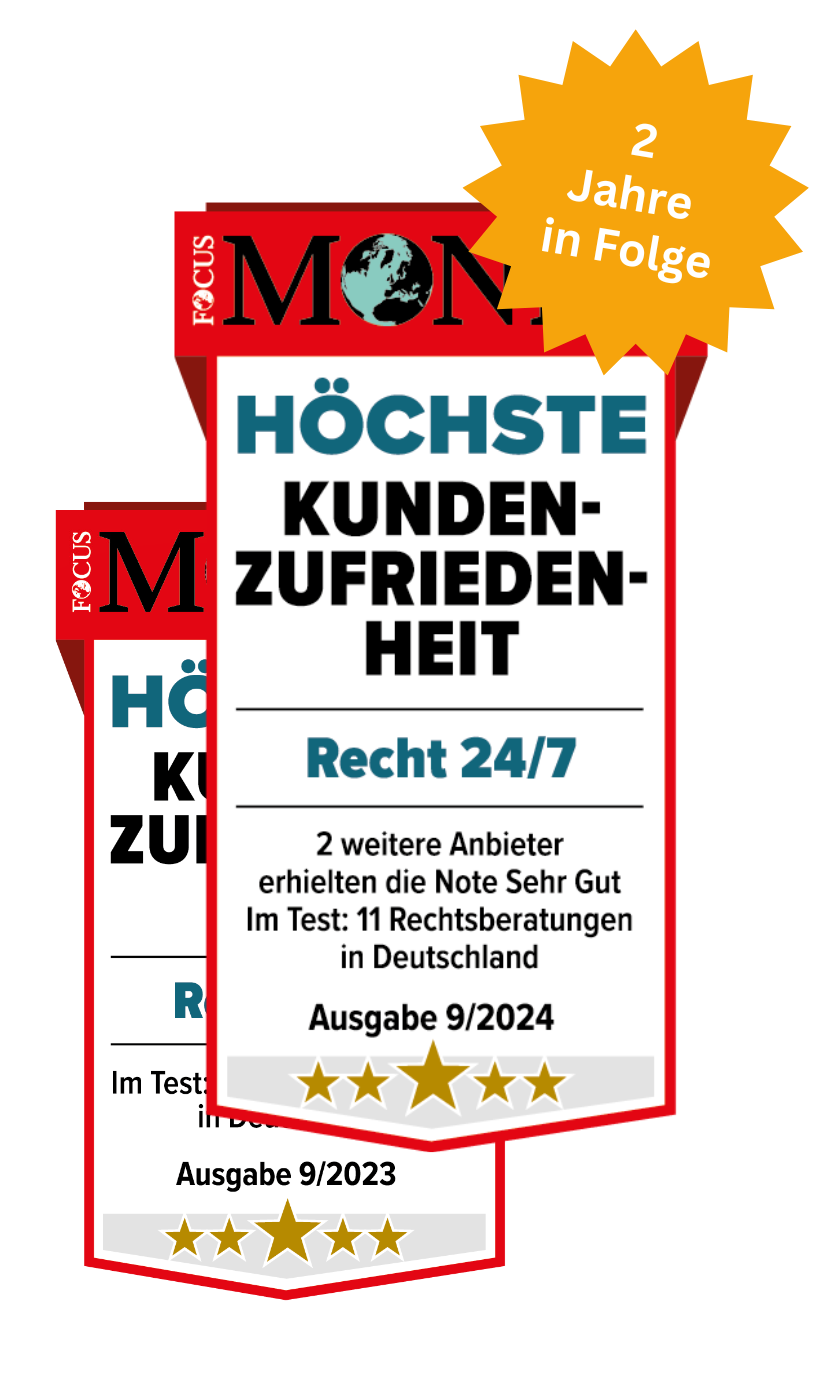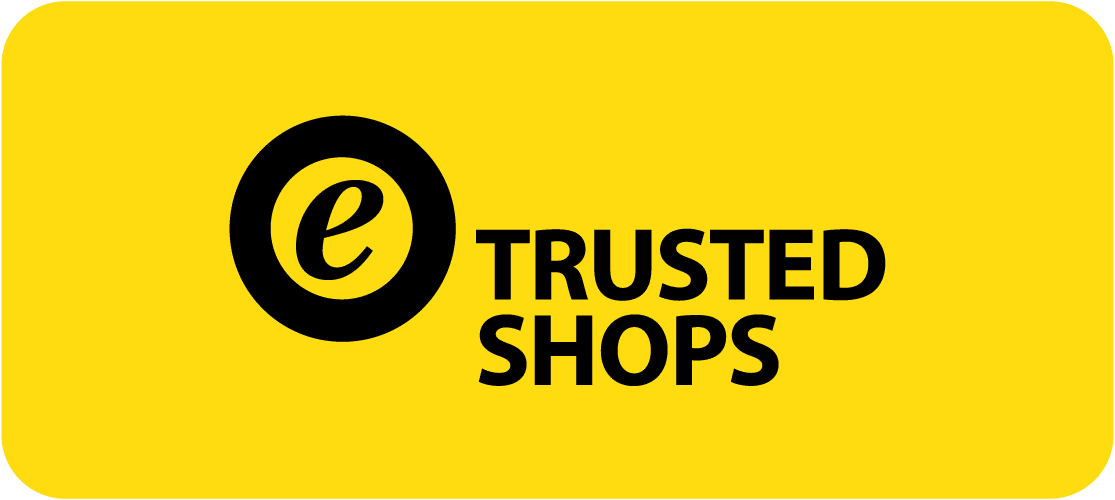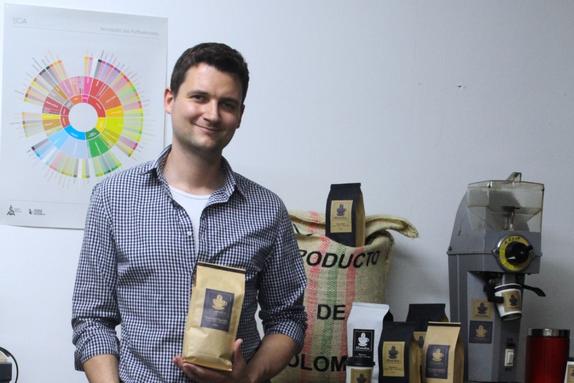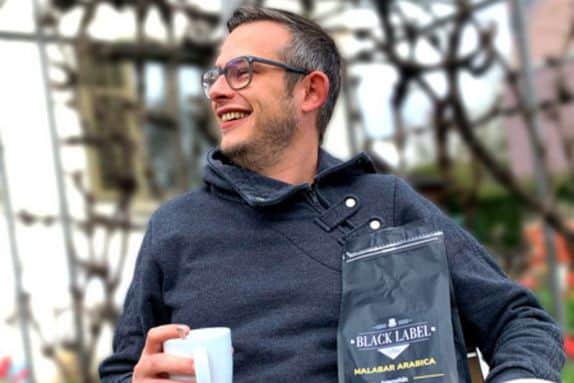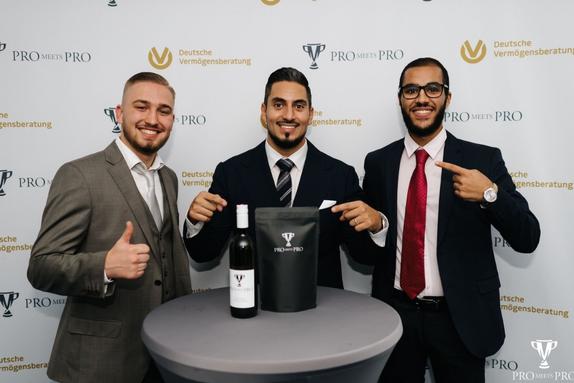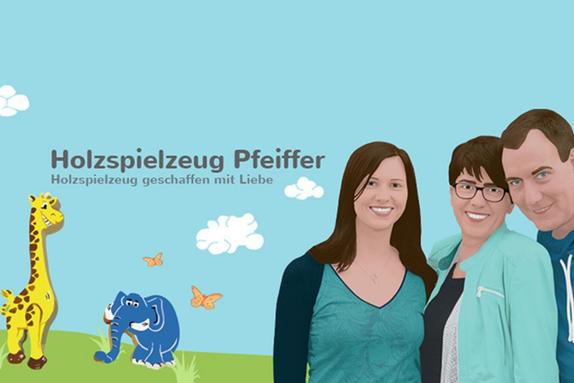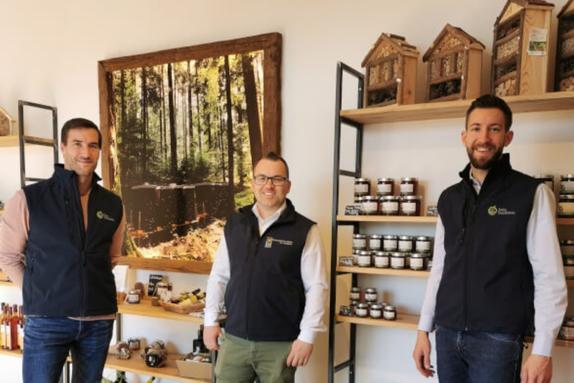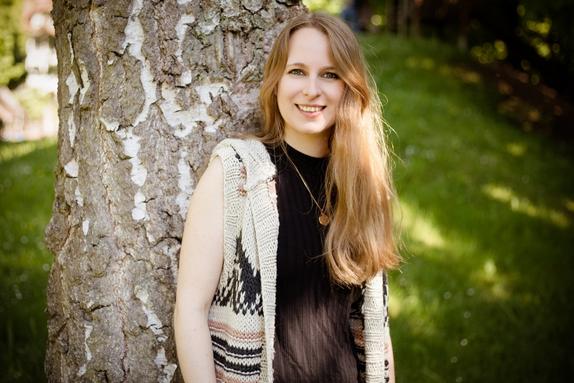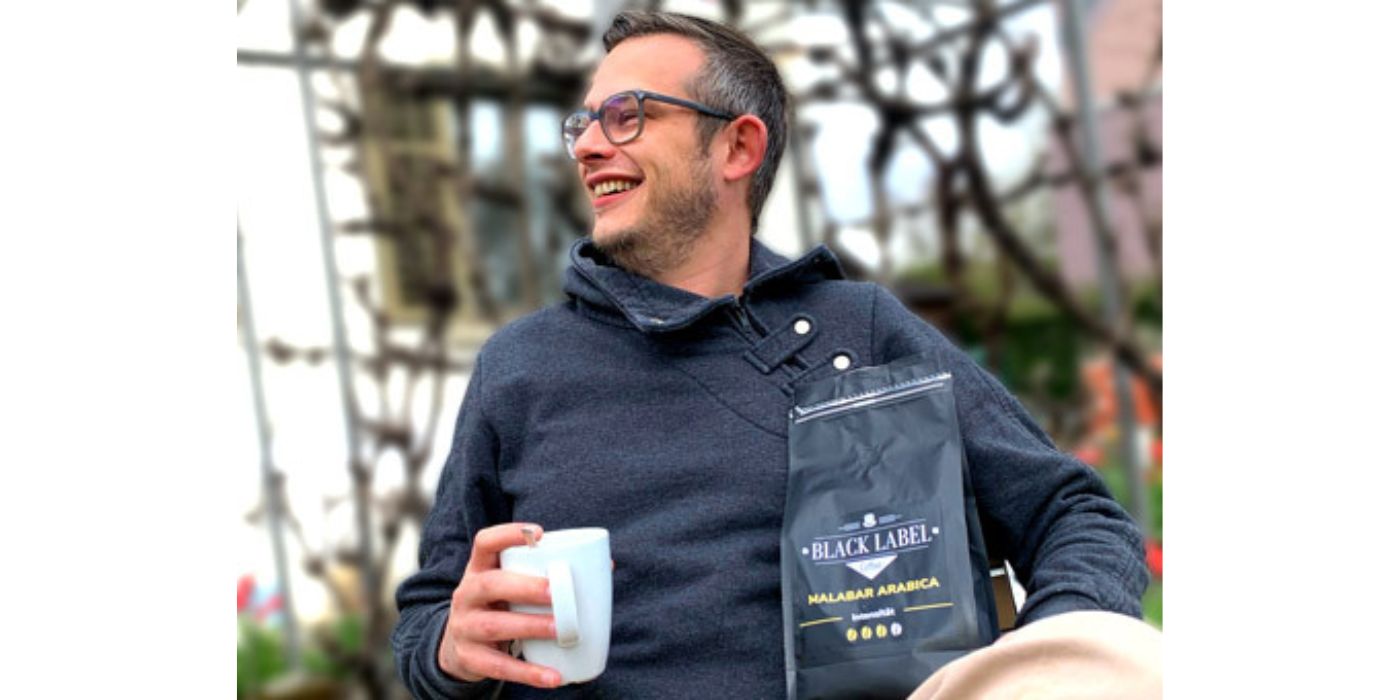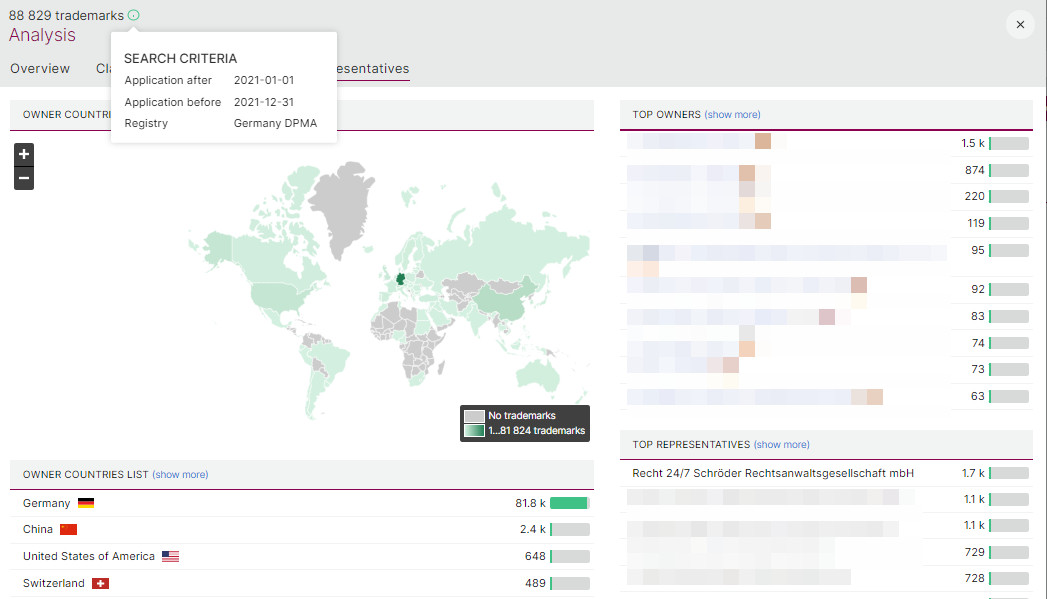Trademark Registration for a Fixed Fee
Fast and easy to your Trademark in Europe and Germany – all Services included, no hidden Costs
We take care of your trademark registration as a word mark (e.g. protection of your brand name), as a word and figurative mark (e.g. protection of your company logo with company name) or as a figurative mark (e.g. protection of your logo without letters).
If you are not sure which type of trademark – a word trademark for a brand name, a word/figurative trademark for a logo, or a figurative trademark for a graphic representation – is the right one for you, we will be happy to advise you in the course of your trademark application.
 Register German Trademark
Register German Trademark
A trademark application at the DPMA is only valid in Germany. If your business is only in Germany and you only need trademark protection for Germany, a German trademark is sufficient.
 Register EU Trademark
Register EU Trademark
Today’s mid-sized companies regularly expand beyond their national borders, so registering a German trademark can quickly reach its limits. If the brand is well positioned, a competitor in another European country can prevent expansion by filing a corresponding trademark application in his own country. In this case, it makes sense to register an EU trademark.
Trademark Application – A Comprehensive Overview of All Services
ONE PRICE – all inclusive – no hidden costs and no surprises – directly from the specialist lawyer. Please read here: Why a trademark application without an availability and identical search makes no sense.
Trademark Registration: A Breeze with Us
Recht 24/7 is known from
Our Clients‘ Success Stories
Benefits of Registering your Trademark with Recht 24/7
Register a Trademark – all the Practical Information you need at a Glance
Registering a trademark may seem simple, but there are many important points to consider. Most importantly, trademark offices do not search for older trademarks or company names, so it is possible to unknowingly infringe on an existing trademark. Furthermore, even after the opposition period has expired, your trademark application can still be challenged in court without any time limit. This means that if a trademark application is not filed professionally, you can expect expensive warnings with a minimum value of EUR 50,000.
It is therefore advisable to hire a specialized attorney to guide you through the process and ensure that all necessary steps have been taken. With their expertise and knowledge of intellectual property law, they can help protect your rights and ensure that your trademark application goes as smoothly as possible.
Trademark registration: Save money by registering yourself?
Filing a trademark application yourself can be a tempting way to save money. Importantly, the rejection rate for private applications is much higher than for those filed by professional trademark attorneys. This means that not only have you wasted your time and effort, but you have also lost the registration fees without any compensation.
The German Patent and Trademark Office (DPMA) and the European Patent Office (EUIPO) do not check whether an application conflicts with older trademarks or company rights, so it is up to you to ensure that your proposed trademark does not infringe existing rights. In addition, many individual applicants fail to pay all required official fees, resulting in the rejection of their applications.
Above all, an identity and similarity search requires specialized software that is not available to the layman:
Trademark registration: research is very important!
It is important to do research before registering a trademark in order to reduce the risks involved. A trademark identity search and a company name identity search can be used to determine whether an identical trademark or company name already exists in the same industry, which could stand in the way of a trademark registration. The Patent and Trademark Office does not check this after receiving your trademark application. Preliminary searches can save you time and money by preventing you from investing in a trademark that has to be cancelled or that creates a costly trademark conflict.
Only a professional search can ensure that the application has a higher chance of success. It is also important to consider potential conflicts with existing trademarks or company names, as this could lead to legal problems down the road.
Register a Trademark Online – What a Trademark Registration Brings
Trademark registration is an important step for any company that wants to protect its brand and identity and add value to its business. A trademark application legally protects your logo, product name, or company name from loss, dilution, or misuse. This means you can take legal action against anyone who tries to use your trademark without permission. This can prevent expensive litigation, immense follow-up costs, and loss of identity.
In addition to the legal protection that a trademark application provides, it also serves to differentiate your products and services from those of your competitors. It helps customers recognize your brand and builds confidence in the quality of your products or services. Most importantly, trademark registration increases the value of your business by giving potential investors confidence in the long-term prospects of your company.
Trademark Registration: Eligible Trademarks
Trademark registration is a real way to protect the unique identity of a product or service. It allows companies to differentiate their products from those of their competitors and helps customers easily identify them.
Typically, a trademark is registered as a word mark, a figurative mark, or a combination of both.
However, not every term can be registered and permitted: Numbers, letters, graphics, colors and shapes can be registered as trademarks. For example, if a company has developed a new and completely unique color for its product, it can trademark that color. Similarly, special bottles for beverages or special packaging materials can be protected with shape marks. Sound marks are also possible, allowing companies to trademark melodies so that they cannot be copied by competitors.
Non-registrable trademark application: Lack of distinctiveness
When choosing a trademark name, distinctiveness is key. Generic terms such as “office chair” or “pasta” are not good brand names because they lack the distinctiveness required for trademark protection. Even very general terms such as “fast” or “cheap,” which are often used in advertising, do not have enough distinctiveness to be protected as a trademark.
In order to be legally protected, a trademark name must be distinctive. This means that the name must be unique and not too similar to other existing names in the same industry. It should also not be generic, meaning that it could refer to any product in the category. By ensuring that the name you choose is sufficiently distinctive for your brand, your company can protect its brand identity and ensure that your customers know exactly who they are buying from.
Misleading labels
Deceptive labeling is a common problem in the consumer marketplace. These labels are used to mislead consumers into believing that a product is of higher quality or origin than it actually is. For example, the brand name “Sachsenbräu” suggests that the product comes from Saxony, when in fact it is produced in Saarland. This type of deceptive labeling can be extremely damaging to both consumers and businesses. Consumers may buy a product under false pretenses, while businesses may lose sales due to misleading branding.
To protect consumers, companies must adhere to strict trademark registration guidelines when using brand names. In addition, the company must ensure that any claims made about the trademark are accurate and not misleading in any way.
Clearance requirements and generic terms
The concept of free use and generic terms is an important part of trademark protection. Components such as generic terms and categories should not be monopolized by a single company. These components usually refer to entire groups of goods, so they can be freely used by anyone.
The Trademark Office decides on a case-by-case basis whether there is a need to keep them free: For example, the applications for the word marks “WM 2016” and “Diesel” were rejected because of their generic character and possible interference with free use by competitors. It is important to note that these decisions are made on a case-by-case basis. Therefore, it is always best to consult with an experienced attorney before attempting to register a trademark.
Not registrable: Brand name already taken
When choosing a trademark, it’s also important to make sure that your desired company name is still available. To do this, you should consult all available trademark registers in your area of business and find out whether similar or identical names are already protected. It is also important to check the commercial register, as companies can be registered there without having applied for trademark protection. To avoid conflicts, either choose a different name or register it as a trademark before the competition does.
As mentioned above: The Trademark Office does not check the newly filed trademark – therefore, without prior trademark research, existing trademarks can easily be infringed. The result is a warning or an objection from the existing trademark when the owner learns of the new registration. In professionally managed companies, this is done through trademark monitoring.
Register a trademark: The Nice Classification
The Nice Classification is the system used by patent offices to classify and catalog trademark applications. It consists of 45 classes divided into 34 classes of goods and 11 classes of services. This classification system is used to identify the type of goods or services to which a trademark applies and makes it easier for companies to protect their intellectual property.
When registering a trademark with the DPMA or EUIPO, class fees may apply in addition to the basic registration fees. At the DPMA, three classes are included in the basic fee, and from the fourth class, a fee of EUR 100.00 is charged for each additional class. The basic fee for the registration of a trademark at the EUIPO is EUR 850.00. This price includes the registration of one class.
Trademark applications without trademark searches?
Trademark applications are filed without trademark searches for economic reasons. Anyone can do a simple search for identical signs on the Internet and the trademark register of the DPMA is accessible to everyone. However, it is much more difficult to search for similar trademarks, company entries in the commercial register and signs acquired by mere use, such as titles of works. It is not possible for the layman to assess the risk of collision, especially if earlier trademarks are registered for other goods and services than those provided for in the trademark application.
A professional trademark search is necessary to identify potential risks associated with a trademark application. A collision can occur between goods and services, for example between “clothing” (class 25) and “retail services with clothing” (class 35). Therefore, it is important to conduct thorough research before filing to avoid potential problems.
Opposition to a trademark application
When a trademark application is refused by the Trademark Office on absolute grounds, such as lack of distinctiveness, it is important for the applicant to carefully consider the Office’s arguments. In many cases, it is advantageous to file an opposition to contest the decision. Objections often have a chance of success in the event of a later escalation before the courts.
This is another reason why it is important to be represented by an experienced attorney when registering a trademark who can advise you on how best to respond to an opposition from the Trademark Office. An attorney can also help determine whether there are legal grounds to contest an opposition and, if so, file an opposition. Responding to an opposition can help protect a trademark applicant’s rights and ensure that the application still has a chance of being registered.
Protect your Trademark now
With Recht 24/7 you get all services at a fixed price, no hidden costs, no packages with additional costs. Our fixed-price offer includes everything you need for a professional, hassle-free trademark registration.
 Register German Trademark
Register German Trademark
 Register EU Trademark
Register EU Trademark
Trademark Registration Questions and Answers with Recht 24/7
Recht 24/7 has been around since 2003. We ensure that your trademark is researched and registered quickly and professionally by a lawyer. Directly to the lawyer – without an intermediary platform and detours. We are among the top law firms for trademark applications in Germany.
We prepare your trademark application within 24 hours after we have received all the necessary information about your trademark, the desired trademark protection and the applicant data.
After your approval, we file the trademark application with the responsible trademark office. The processing at the trademark office until the publication of the trademark in the trademark register usually takes up to 4 months.
To apply for a trademark, a corresponding application must be filed with the German Patent and Trademark Office (DPMA). The DPMA first checks whether all formal details comply with the legal requirements and whether the official fees have been paid. In addition, the office examines the so-called absolute grounds for refusal. These exist, for example, for trademarks that:
- lack distinctive character
- contain a sovereign sign
- are contrary to public policy or morality.
If there are no grounds for refusal and the formal examination is positive, your trademark will be entered in the trademark register. The entire process is complex and requires competent correspondence with the trademark office. As part of our “Trademark Application” product, we take care of all the necessary steps for you – from a detailed trademark search to the immediate application.
Trademark protection applies in the countries for which the trademark was registered.
For a German trademark, the protection area is Germany; for an EU trademark, the trademark protection applies EU-wide, i.e. in all member states of the European Union.
You will receive your trademark certificate from us after the trademark office has registered and published your trademark in the trademark register. When applying for a German trademark you will receive the trademark certificate in paper form, when applying for an EU trademark you will receive the trademark certificate in digital form (PDF file), as the EUIPO (European Trademark Office) only provides this format.
The goods and services to which trademark protection extends are organized into classes. The trademark classification determines the claimed areas (classes) of the goods or services for which a trademark can be protected.
The official fees (which have to be paid to the Trademark Office after the application has been filed) of an application depend on the number of classes filed and amount to:
At the DPMA for the application of a German trademark:
- 290.00 € for the DPMA standard application fee with up to three classes
- for each additional class 100,00 € office fee
At EUIPO (EU Trademark Office) for the application of an EU trademark:
- standard application fee with one class: 850 €
- second class 50 € additional office fee
- each additional class 150 € additional office fee
Trademarks are not registered across the board. Rather, it must be listed for which goods and/or services your trademark is to be protected. This list of goods and services is therefore an important part of the trademark application, which is incomplete without such a list.
The goods and services to which trademark protection extends are organized into (Nice) classes. The trademark classification determines the claimed areas (classes) of the goods or services for which a trademark can be protected.
This trademark classification is divided into 45 classes using an internationally uniform system, the “Nice Classification”.
Yes, when filing a trademark application through Recht 24/7, Recht 24/7 Schröder Rechtsanwaltsgesellschaft mbH is the representative for your trademark application. We take care of the application procedure, clarify queries from the Trademark Office and handle all communication with the Trademark Office.
If you, as the applicant, do not have a place of residence or business or a branch office, it is mandatory that you be represented by a legal or patent attorney admitted to practice in Germany (Section 96 (1) of the German Trademark Act). This is guaranteed with a trademark application through Recht 24/7.
There are three types of trademarks: Word marks, figurative marks, and word/figurative marks.
Word marks are marks consisting of words, letters, numbers or other characters of the character set used by the Trademark Office. The scope of protection of the trademark here refers to the sequence of characters of the word and usually includes all common spellings.
Figurative marks are pictures, figurative elements or illustrations (without word elements).
Word/figurative marks are, as the name suggests, a combination of both. They consist of word and image elements or of words that are graphically designed in a special way. A classic example of this is a logo with lettering or a special spelling. Here, protection extends to the combination of these representations.
We will be happy to advise you on which trademark form is the best option for your trademark application.
The monitoring of your trademark with all the above services costs 29.90 EURO per month.
All databases of the trademark registers DPMA, EUIPO, USPTO & WIPO (Madrid) are searched for identical or similar trademarks.
If the trademark monitoring search report reveals a collision, we will contact you. We will advise you on the best course of action to take against a plagiarist.
If you are a (quasi-) manufacturer of goods, the respective goods protection is required. The protection of goods automatically includes the protection of the associated retail services.
If you are a retailer of a good, the protection of the respective retail service is required, not the protection of the good.
If owners of similar or identical trademarks have set up a trademark watch, they will receive notification of your application.
If confusability is alleged, opposition can be filed against your application. Therefore, we advise you to set up a trademark watch after registering your trademark.
If owners of similar or identical trademarks have set up trademark monitoring, they will receive notification of your application.
If confusion is alleged, opposition to your application may be filed. Therefore, after registering your trademark, we also advise you to set up a trademark watch.
If you are a (quasi-) manufacturer of goods, the respective goods protection is required. The protection of goods automatically includes the protection of the associated retail services.
If you are a retailer of goods, the protection of the respective retail services is required, not the protection of the goods.
There are three types of trademarks: Word marks, figurative marks, and word/figurative marks.
- Word marks are marks consisting of words, letters, numbers or other characters of the character set used by the Trademark Office. The scope of protection of the trademark here refers to the sequence of characters of the word and usually includes all common spellings.
- Figurative marks are pictures, figurative elements or illustrations (without word elements).
- Word/figurative marks are, as the name suggests, a combination of both. They consist of word and picture elements or of words that are graphically designed in a special way. A classic example of this is a logo with lettering or a special spelling. Here, protection extends to the combination of these representations.
We will be happy to advise you on which trademark form is the best option for your trademark application.
Yes, when you file a trademark application through Recht 24/7, Recht 24/7 Schröder Rechtsanwaltsgesellschaft mbH acts as the representative for your trademark application. We handle the application procedure, clarify queries from the trademark office and handle all communication with the trademark office.
If you, as the applicant, do not have a place of residence or business or a branch office, it is mandatory that you be represented by a legal or patent attorney admitted to practice in Germany (Sec. 96 (1) Trademark Act). This is guaranteed with a trademark application through Recht 24/7.
Trademarks are not registered in a blanket manner. Rather, it must be listed for which goods and/or services your trademark is to be protected. This list of goods and services is therefore an important part of the trademark application, which is incomplete without such a list.
The goods and services to which trademark protection extends are organized into (Nice) classes. The trademark classification determines the claimed areas (classes) of the goods or services for which a trademark can be protected.
This trademark classification is divided into 45 classes using an internationally uniform system, the “Nice Classification”.
The goods and services to which trademark protection extends are organized into classes. The trademark classification determines the claimed areas (classes) of the goods or services for which a trademark can be protected.
The official fees (which have to be paid to the Trademark Office after the application has been filed) of an application depend on the number of classes filed and amount to:
- At the DPMA for the application of a German trademark
- 290.00 € for the DPMA standard application fee with up to three classes
- for each additional class 100,00 € office fee
- At EUIPO (EU Trademark Office) for the application of an EU trademark
- standard application fee with one class: 850 €
- second class 50 € additional office fee
- each additional class 150 € additional official fee
You will receive your trademark certificate from us after the Trademark Office has registered and published your trademark in the Trademark Register.
If you are applying for a German trademark, you will receive the trademark certificate in paper form.
If you are applying for an EU trademark, you will receive the trademark certificate in digital form (PDF file), as the EUIPO (European Trademark Office) only provides this format.
Trademark protection applies in the countries for which the trademark was applied for.
For a German trademark the protection area is Germany, for an EU trademark the trademark protection applies EU wide, i.e. in all member states of the European Union.
To apply for a trademark, a corresponding application must be filed with the Patent and Trademark Office. The Patent and Trademark Office first checks whether all formal details comply with the legal requirements and whether the official fees have been paid. In addition, the office examines the so-called absolute grounds for refusal. These exist, for example, for trademarks that:
- lack distinctive character
- contain a sovereign sign
- are contrary to public policy or morality.
If there are no grounds for refusal and the formal examination is positive, your trademark will be entered in the trademark register. The entire process is complex and requires competent correspondence with the trademark office.
As part of our “Trademark Application” product, we take care of all the necessary steps for you – from a detailed trademark search to the immediate application.
We will prepare your trademark application within 24 hours after we have received all the necessary information about your trademark, the desired trademark protection and the applicant data.
After your approval, we file the trademark application with the relevant trademark office. Processing at the trademark office until publication of the trademark in the trademark register usually takes up to 4 months.
Recht 24/7 has been around since 2003 and ensures that your trademark is researched and filed quickly and professionally by a lawyer.
Directly to the attorney – without an intermediary platform and detours. We are among the top law firms for trademark applications in Germany.
The BASIC model contains the examination of the protectability of the trademark and its application.
Only with the BUSINESS model is an identity and similarity search included, which is carried out before filing the trademark application.
Our Blog Posts on Trademark Registration
Newsletter: Recht 24/7 Client Information
Our free newsletter – directly from the lawyer.
You will receive a 10% voucher code on your next order.
